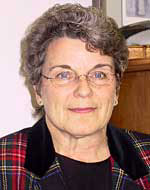Guns, Gambling likely to spark legislative debate
By Tom Scheck
Minnesota Public Radio
January 24, 2002
|
| RealAudio |
State lawmakers will be grappling with budget problems throughout the Legislative session, but some predict a few controversial social issues will also come up. Some lawmakers say the state's nearly $2 billion budget shortfall should deter lawmakers from proposing controversial issues. But others say expanding gambling in the state would help solve the budget problems and also build two professional sports stadiums. Advocates of changing the laws covering carrying concealed handguns say the events of Sept. 11 have prompted them to revisit that issue.
| |
|
|
|
||
Some lawmakers around the Capitol expect the Senate to revisit handgun legislation in the early days of the session. Opponents of the the bill that would streamline so-called concealed carry permits will be two votes short after DFLer Randy Kelly became St. Paul's mayor and Duluth DFL Sen. Sam Solon died. A Jan. 29 special election will fill those vacancies.
Sen. Pat Pariseau, R-Farmington, withdrew the concealed carry bill last year after amendments were attached. The House passed the bill, which makes it easier for Minnesotans who qualify to get a permit to carry a gun.
Gov. Ventura said last session he'd sign the bill if it arrived on his desk. Pariseau says the bill could come up any time. "Any day of the session is a possibility. I wouldn't give any strategies to what we're expecting right now because we're still talking to some people who have opposed it in the past," she says.
While Pariseau won't say when she hopes the Senate will revisit the legislation, she says she'll continue to push the legislation every year until it passes. Pariseau argues the bill is even more important after last year's terrorist attacks.
"If your state, where you live, allows you to have the right to carry a weapon to protect yourself, the criminals can't tell who's armed and not armed. Therefore, they're a little more nervous about entering properties, seizing people or doing personal violent crime to people because they don't know if you, Tom Jones, is armed or not armed," Pariseau says.
Opponents say easing restrictions would cause even greater problems. A variety of public safety groups oppose the legislation because they say it could endanger police officers. Current law allows local police chiefs to make the decision about issuing concealed carry permits.
Rep. Wes Skoglund, DFL-Minneapolis, says he's concerned some lawmakers may vote for the legislation because it's an election year. He says come November, the National Rifle Association will oppose any lawmakers who votes against the concealed carry bill.
"It's dangerous. The more armed people we have, the more shootings there are going to be. There's just no question about that. This is not Afghanistan, this is America. One reason it's safe inside America is that we don't have people walking around airports with sidearms," Skoglund says.
GAMBLING PUSH LIKELY TO MAKE COMEBACK
While lawmakers and special interest groups continue to debate the merits of the concealed carry legislation, other lawmakers will pursue state-run casino gambling. A variety of gambling bills are being touted as the solution to the state budget shortfall, the answer to building new stadiums and a funding source for highways and roads.
|
"Those folks interested in expanding gambling in the state aren't looking at the total human cost of what they're proposing."
- Rep. Eric Lipman, R-Lake Elmo |
Rep. Tony Kielkucki, R-Long Prairie, wants voters to decide if the state should let a private company run two metro-area casinos. He says in return, the company would have to spend $450 million for stadiums for the Twins and Vikings.
Kielkucki also says the state would tax 10 percent of the casinos' gross revenue. He estimates that would raise $70 million a year.
"People in Minnesota gamble already. It's a matter of choice by people. Now is there a percentage of the population that's going to be impacted by this in a negative way? Probably. I won't even say probably, I'll say there will be. But at the same time, I don't know if you could legislate against that," he says.
Other proposals include putting slot machines at Canterbury Park race track, running a metro-area casino that would split profits with two northern Chippewa tribes, and permitting legal betting on sports.
There are 18 Native American casinos already operating in the state.
Rep. Eric Lipman, R-Lake Elmo, says expanding gambling is a bad idea because it's socially and morally wrong. "It certainly is not something that the state should be involved in at any price," he says. "However alluring the millions in profits might seem, there are just some things where the pricetag is just too high. We have to be concerned about the total cost of the enterprise and I think those folks interested in expanding gambling in the state aren't looking at the total human cost of what they're proposing."
Lipman says some of his colleagues in the Republican-controlled House are intrigued with the idea of allowing voters to decide to expand gambling in the state . He says he'll continue to lobby his colleagues to solve the state's budget crisis in other ways.
More from MPR
